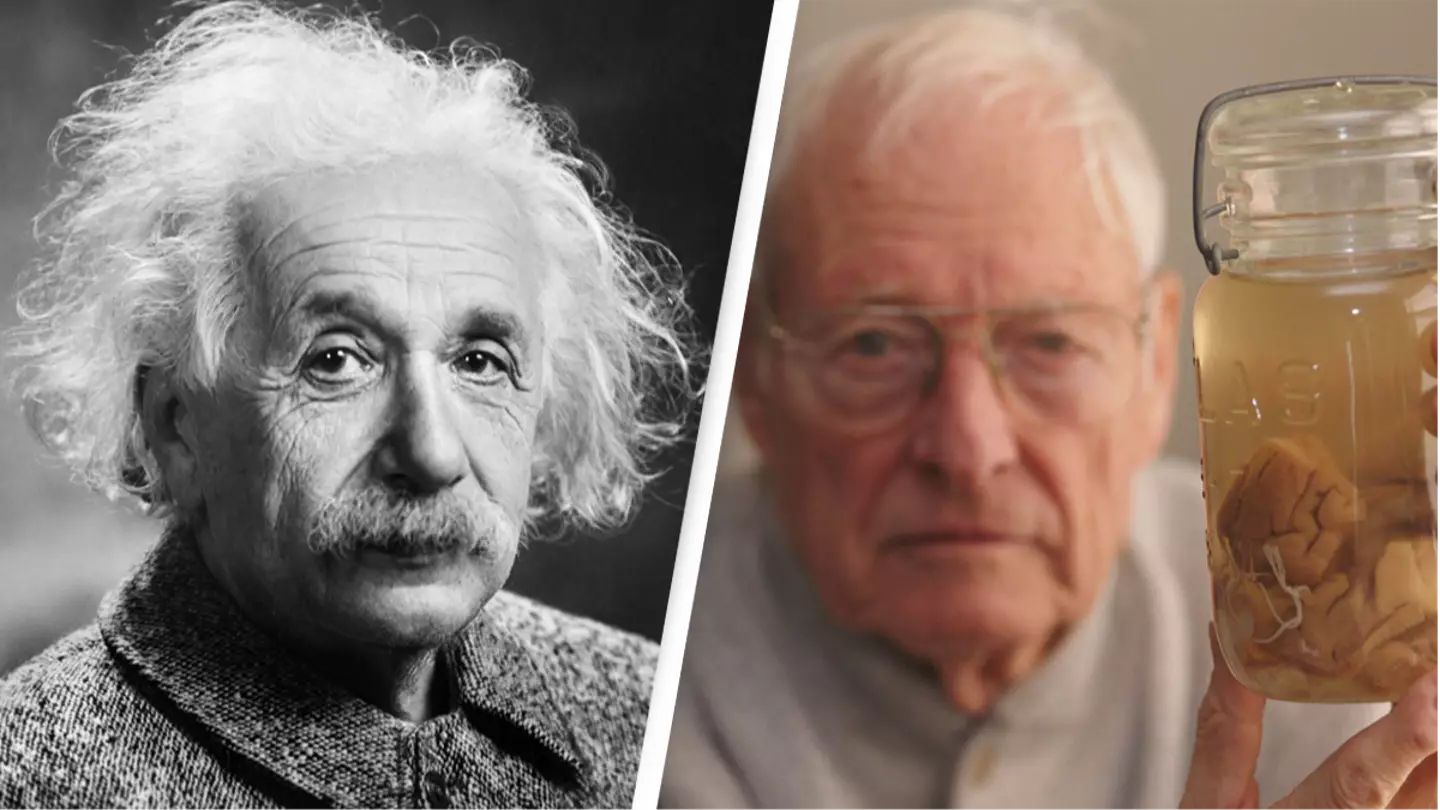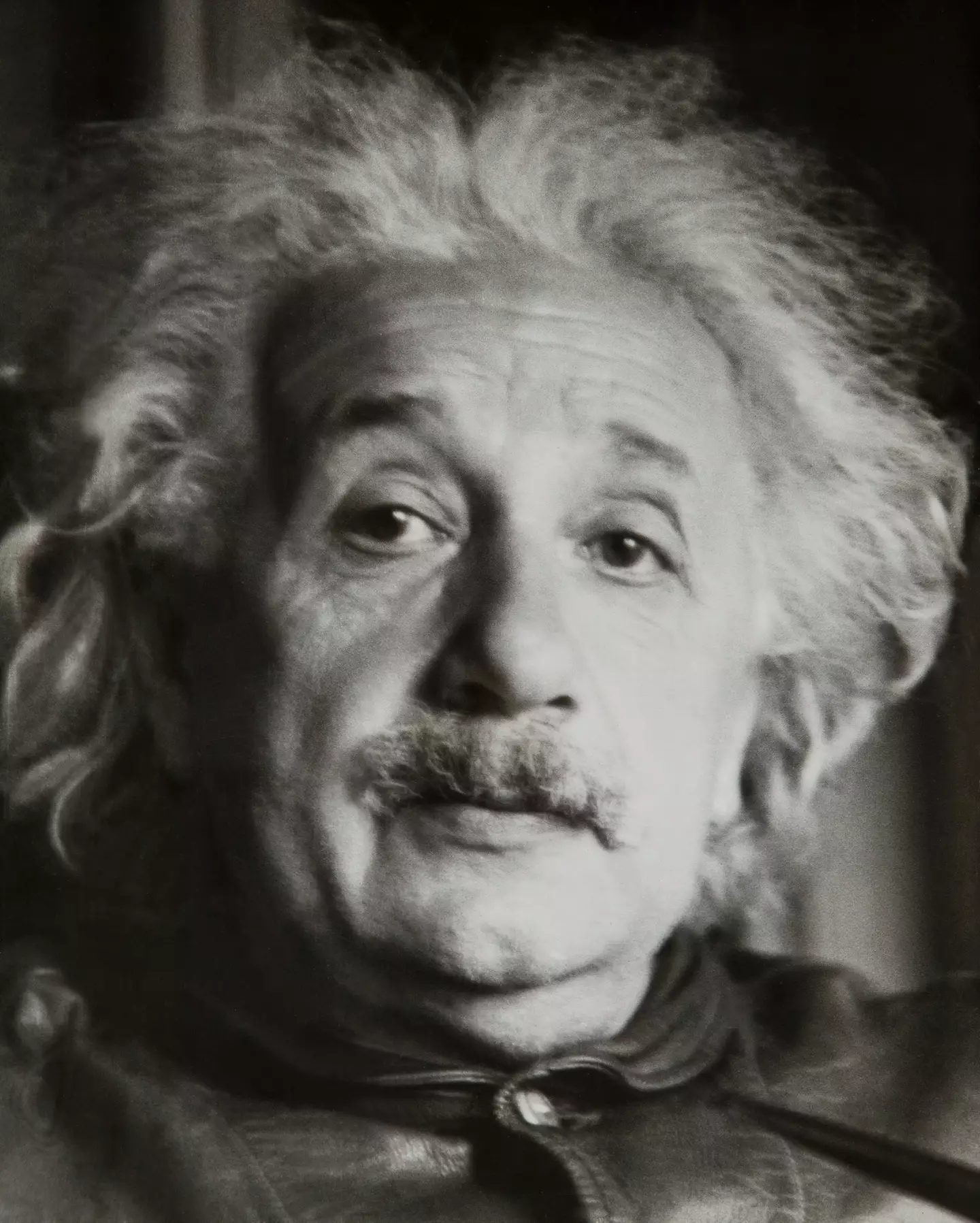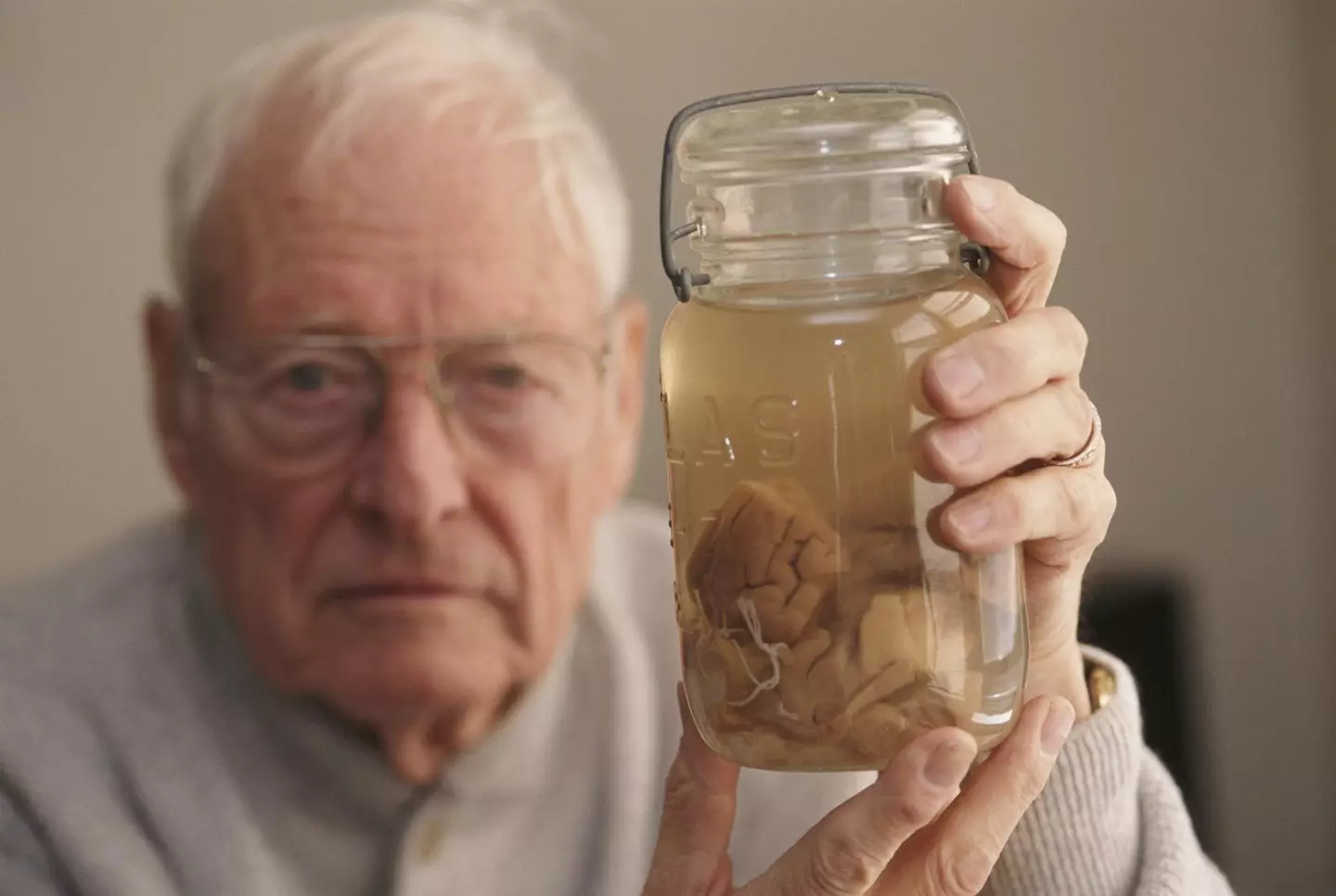
The man who performed an autopsy on the famous scientist Albert Einstein kept several pieces of the great man’s brain in a jar without permission.
It’s one of the more bizarre stories in the scientific world, but a man called Thomas Stolz Harvey had the professional honour of working with one of the most famous brains to ever live and decided that he wanted to continue the relationship well beyond the expected parameters.
When Albert Einstein, the man who brought the world the theory of relativity amongst other things, died in Princeton Hospital in April of 1955, he had made certain plans for his remains that were not carried out.
According to Brian Burrell, the author of a book called Postcards from the Brain Museum, Einstein didn’t want any examination of his brain or body.
Advert
He claimed: “He had left behind specific instructions regarding his remains: cremate them, and scatter the ashes secretly in order to discourage idolaters.”

However, after performing an autopsy, Harvey stole the brain anyway, cutting it up into many pieces for study, despite the wishes of the Einstein family.
Eventually, they consented to allow the study of the brain, although they stipulated that the results only be published in scientific journals and that the finding were not sensationalised.
Harvey was sacked from his post at the hospital, but kept hold of the brain nonetheless, keeping it in two jars in his home basement.
Things then got even more strange.
Burrell writes: “After [Harvey’s] wife threatened to dispose of the brain, he returned to retrieve it and took it with him to the Midwest.
“For a time he worked as a medical supervisor in a biological testing lab in Wichita, Kansas, keeping the brain in a cider box stashed under a beer cooler.
“He moved again, to Weston, Missouri, and practiced medicine while trying to study the brain in his spare time, only to lose his medical license in 1988 after failing a three-day competency exam.
“He then relocated to Lawrence, Kansas, took an assembly-line job in a plastic-extrusion factory, moved into a second-floor apartment next to a gas station, and befriended a neighbor, the beat poet William Burroughs."
“The two men routinely met for drinks on Burroughs’s front porch.
“Harvey would tell stories about the brain, about cutting off chunks to send to researchers around the world. Burroughs, in turn, would boast to visitors that he could have a piece of Einstein any time he wanted.”
It wasn’t until 1985 that the first study of Einstein’s brain was released.

Harvey and his co-researchers claimed that it had an abnormal proportion of neurons and glia, two types of cells.
They claimed that these results could help explain the neurological fundamentals of intelligence, but other scientists have rubbished that claim, claiming that the storage of the brain as well as the rigour applied to the experiment could have had an effect.
The control group they presented in their study was not deemed to be controlled well enough, and it was pointed out that Einstein’s brain had been preserved for years, whereas the controls were fresh.
In the end, after sharing bits of Einstein’s brain around the scientific community for years, having taken it without permission, Harvey died at the Princeton University Medical Center at the age of 94 in 2007.
It’s safe to assume that nobody stole his brain.
If you have a story you want to tell, send it to UNILAD via [email protected]